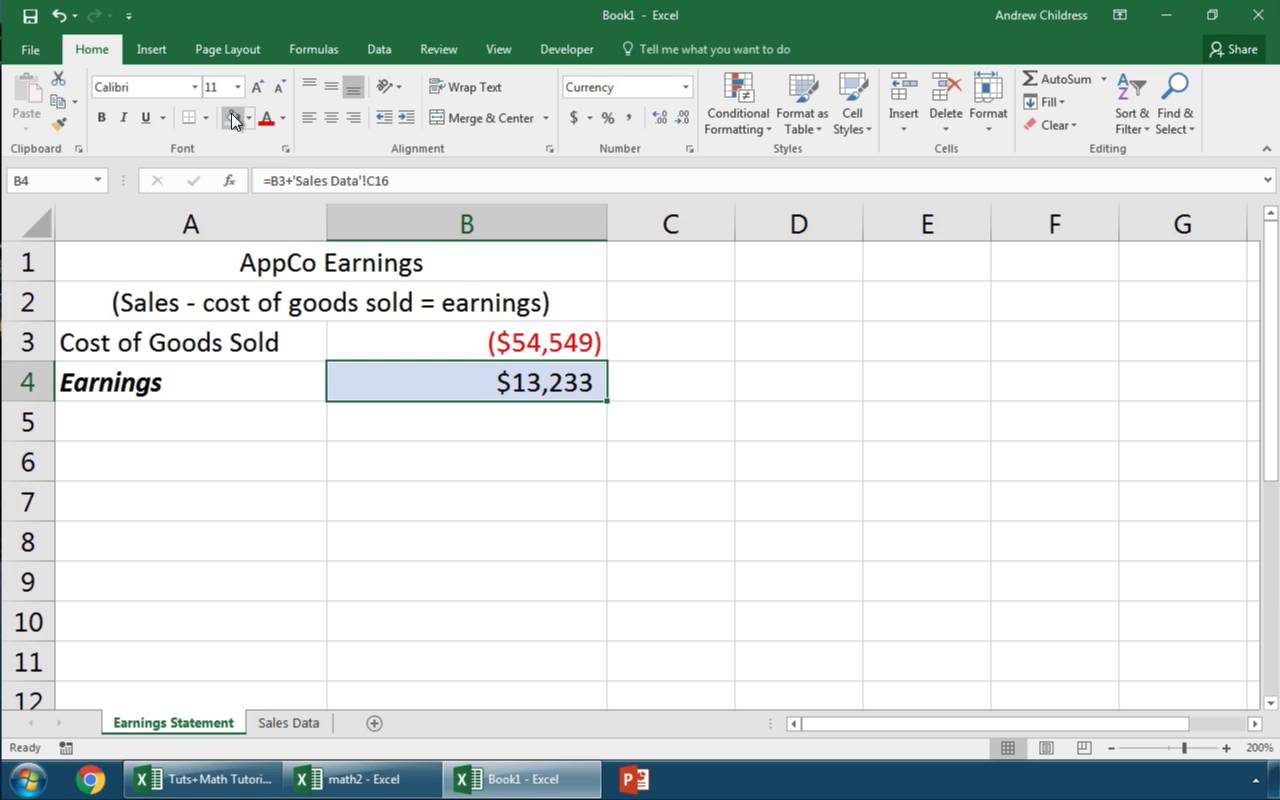5 Simple Ways to Link Cells Between Excel Sheets

In today's bustling business environment, Excel is not just a tool for storing data but a dynamic platform for managing complex information across various departments. Linking cells between Excel sheets is crucial for maintaining real-time data synchronization and improving the efficiency of data analysis. Here are five simple ways to link cells between Excel sheets to enhance your workflow:
1. Using Cell References

Linking cells using direct cell references is one of the simplest methods:
- Basic Syntax: Use the equal sign followed by the sheet name and cell reference. For instance, to link cell A1 from ‘Sheet1’ to ‘Sheet2’, type =Sheet1!A1 into the cell in ‘Sheet2’.
- Naming Cells: Naming cells can simplify references. Go to Formulas > Define Name to create a name for a cell or range, then use this name in your formula for easier management.
2. Paste Link Feature

Excel’s Paste Link feature allows you to copy and link data:
- Steps:
- Select the cell or range you want to link from.
- Copy the data (Ctrl+C or Cmd+C).
- Go to the destination cell, right-click, choose Paste Special, then select “Paste Link”.
3. Data Consolidation

This method is excellent for combining data from different sheets:
- Use the Consolidate feature found under the Data tab:
- Select where you want to consolidate data.
- Go to Data > Consolidate.
- Choose the function (like Sum, Average, etc.)
- Add ranges from different sheets, ensuring to use the sheet name in the references.
4. Using External References

For linking data across different workbooks:
- Follow the basic syntax for linking within a workbook, but include the workbook name, e.g., =[WorkbookName]Sheet1!A1.
5. VLOOKUP and HLOOKUP

These functions allow you to dynamically pull data from another sheet based on a lookup value:
- VLOOKUP: Vertical lookup function to find data in a column.
=VLOOKUP(lookup_value, table_array, col_index_num, [range_lookup])
- HLOOKUP: Horizontal lookup function for rows.
=HLOOKUP(lookup_value, table_array, row_index_num, [range_lookup])
⚠️ Note: Always ensure the linked sheets or workbooks are open for external references to work properly. If the file paths change, you'll need to update the references manually or use the Edit Links feature.
In conclusion, these methods provide versatile options for managing and integrating data across multiple sheets or workbooks in Excel. By understanding and applying these linking techniques, you can streamline your data workflows, ensure data consistency, and enhance your analytical capabilities. Whether you're working on financial models, inventory lists, or project tracking, these linking strategies will boost your productivity and accuracy in Excel.
What happens if a source workbook is not open?

+
If the source workbook is closed, Excel will show an error in the linked cell. You can update the links manually through Data > Edit Links when the source file is accessible again.
Can I link multiple sheets at once?

+
Yes, you can link data from multiple sheets simultaneously using data consolidation or by manually setting up individual links. Excel 365 offers a feature called Power Query for advanced data merging.
How do I break a link?

+
To break a link, you can convert formulas to values by copying and pasting values over the linked cells, or navigate to Data > Edit Links, and choose “Break Link”.